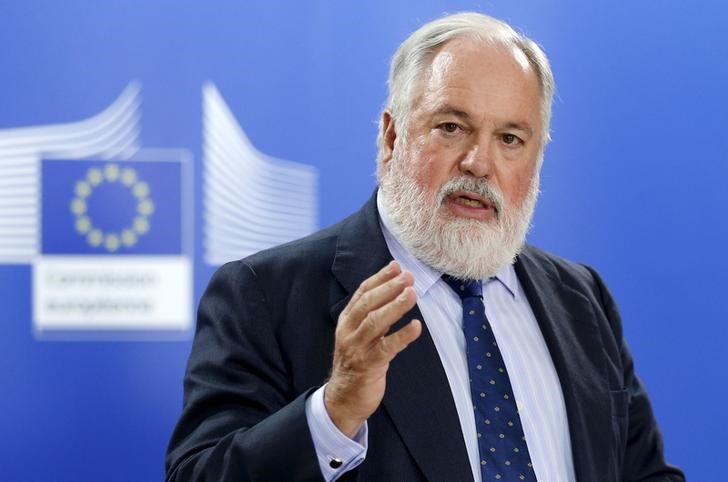By Benet Koleka
TIRANA (Reuters) - The European Union will push for an U.N. deal to cap global warming that spans the century and for checks on progress every five years, Europe's climate chief said on Friday.
Climate and Energy Commissioner Miguel Arias Canete said any deal reached at talks in Paris starting next month must also have an element of "dynamic increase of ambition over time" to cut emissions further.
"First we want a binding agreement, but we want a deal which is valid for the whole century," said Arias Canete, in Tirana to discuss energy issues with officials of Balkan and Black Sea states.
"We do not want the Paris agreement with commitments ending in 2030 because the Paris agreement cannot be an agreement that starts in 2020 or 2021 and finishes in 2030, like the Kyoto Protocol, which finishes in 2020."
There is a gap between what will be put on the table at talks in Paris in November 30 and what is needed to fight global warming, Arias Canete said, referring to pledges by 150 states accounting for 90 percent of global emissions.
Those pledges would lead to an increase in the earth's temperature of three degrees above pre-industrial times, one more than the two-degree limit the EU wants cemented into any Paris deal and which scientists say can prevent the most devastating consequences of global warming.
While the EU and developing nations are among those urging an internationally-binding text, others, such as the United States, want only national enforcement.
The last attempt to reach a global climate deal was at the failed Copenhagen summit in 2009.
AMBITION
"If it is just an agreement which finishes in 2030, (and) lacks ambition, it does not solve the problem of the actual gap that we have already seen when we have analysed the INDCs of 150 countries," Arias Canete told Reuters in an interview.
INDCs are the "individual nationally determined contributions" of greenhouse gas emissions cuts by 150 countries responsible for 90 percent of global emissions.
The EU was the first major economy to deliver its emissions pledge in March. It promised to cut emissions by at least 40 percent by 2030 compared with 1990 levels.
Arias Canete said the EU was keen to assess every five years whether "we are in two degrees, 2.75 degrees, or 2.5 degrees" and establish a benchmarking exercise for 2050.
"And those things must be in the operational core part of the agreement, not otherwise. If we have an agreement of that nature, it will be valid, it will be an instrument and then we'll have to refine it over time," he said.
"If we just say these are the INDCs on the table and in 2030 we convey another conference to say what we are going to do, it is not valid," he added.

"There is goodwill to achieve an agreement. How ambitious? We are on the ambitious side, other people are not so ambitious so we have to negotiate."